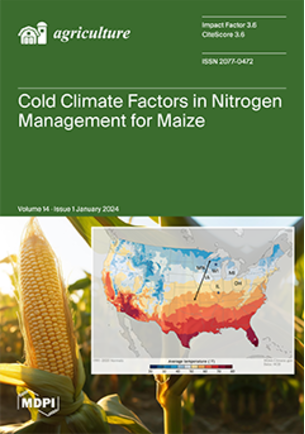农业部门生物经济、生物质生产、循环方法和循环经济考虑因素概述
Q2 Agricultural and Biological Sciences
引用次数: 0
摘要
本综述探讨了与农业部门相关的循环经济(CE)的基本组成部分。生物经济和循环经济对全球工业的可持续增长至关重要,其重点是闭环系统。可持续发展辩论的核心是代际公平和自然资本。行政首长协调会需要新的环境技术和全球协调,以应对气候变化和生物多样性的丧失。此外,由于人口增长,高效的粮食生产和减少废物也至关重要。然而,生物质对于生物经济至关重要,会影响粮食浪费和气候变化。草地支持可持续的奶制品生产和碳封存。因此,有效的废物和废水管理至关重要,而生物质能源则提供了可再生的替代品。尽管如此,生物燃料仍然是可持续发展的关键,重点是污染控制和绿色化学。众所周知,可持续交通依赖于生物能源,目前的研究正在改进工艺和发现新燃料。一个值得注意的挑战是生物燃料生产中的重金属管理,这凸显了对生态友好型能源解决方案的需求。本综述论文的主要目的是建立循环经济与农业系统之间的联系,重点关注以下方面:生物经济研究、生物质能利用和生物燃料生产。通过对主要问题的归纳,对专业文献进行了广泛研究。本文的主要议题包括生物质在农业中的利用、塑料回收问题以及行政首长协调会在减缓气候变化和生物多样性丧失方面的作用。高效的粮食生产和废物减量化因其与不断增长的人口息息相关而受到重视。该研究的详细研究和讨论旨在就这些做法如何促进经济发展和可持续性提供重要见解。此外,该研究还涉及重要的废物管理问题,如食物废物、植物堆肥和化学废物中和。这些课题对于理解循环经济对最大限度减少环境破坏和实施可持续废物管理战略的广泛影响至关重要。本文章由计算机程序翻译,如有差异,请以英文原文为准。
An Overview on Bioeconomy in Agricultural Sector, Biomass Production, Recycling Methods, and Circular Economy Considerations
This review examines the essential components of a circular economy (CE) in relation to the agricultural sector. The bioeconomy and circular economy are crucial for sustainable global industrial growth, focusing on closed-loop systems. The sustainability debate centers on intergenerational equity and natural capital. The CE requires new environmental technologies and global coordination in order to combat climate change and biodiversity loss. In addition, efficient food production and waste reduction are essential due to population growth. However, biomass is vital for a bio-based economy, impacting food waste and climate change. Grasslands support sustainable dairy production and carbon sequestration. Thus, effective waste and wastewater management are critical, with biomass energy providing renewable alternatives. Nonetheless, biofuels remain key for sustainability, focusing on pollution control and Green Chemistry. It is well known that sustainable transportation relies on bioenergy, with ongoing research improving processes and discovering new fuels. One notable challenge is managing heavy metals in biofuel production, and this underscores the need for eco-friendly energy solutions. The main purpose for this review paper is to create a connection between circular economy aspects and the agricultural system, with focus on the following: bioeconomy research, biomass utilities, and biofuel production. Extensive research was performed on the specialized literature by putting in common the main problems. Key subjects in this paper include the use of biomass in agriculture, the problems of plastic recycling, and the function of the CE in mitigating climate change and biodiversity loss. Efficient food production and waste minimization are highlighted due to their relevance in a growing population. The study’s detailed research and discussion aim to give important insights into how these practices might promote economic development and sustainability. Furthermore, the study covers important waste management issues such as food waste, plant composting, and chemical waste neutralization. These topics are critical to understanding the circular economy’s broader implications for minimizing environmental damage and implementing sustainable waste management strategies.
求助全文
通过发布文献求助,成功后即可免费获取论文全文。
去求助
来源期刊

Agriculture
Agricultural and Biological Sciences-Horticulture
CiteScore
1.90
自引率
0.00%
发文量
4
审稿时长
11 weeks
期刊介绍:
The Agriculture (Poľnohospodárstvo) is a peer-reviewed international journal that publishes mainly original research papers. The journal examines various aspects of research and is devoted to the publication of papers dealing with the following subjects: plant nutrition, protection, breeding, genetics and biotechnology, quality of plant products, grassland, mountain agriculture and environment, soil science and conservation, mechanization and economics of plant production and other spheres of plant science. Journal is published 4 times per year.
 求助内容:
求助内容: 应助结果提醒方式:
应助结果提醒方式:


